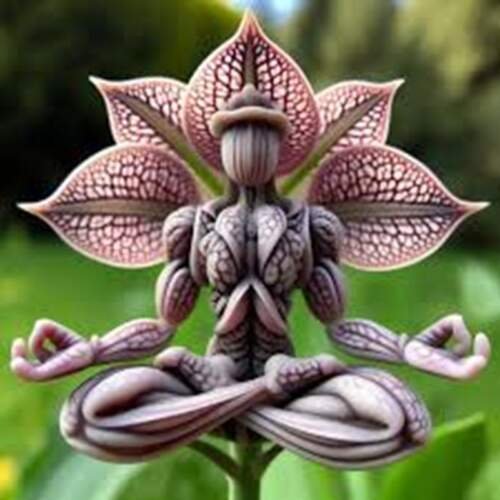Nature has provided us with an abundance of resources that can be used for medicinal purposes. While many people are familiar with herbs and plants that can be used for homemade remedies, there are also many medicinal trees and shrubs that can be harvested for their healing properties.
In this article, we will explore 25 medicinal trees that are great to harvest for homemade medicine. From the forests of India to the mountains of North America, these trees have been used for centuries to treat various ailments and promote overall health and wellness.
The Benefits of Medicinal Trees
Medicinal trees offer a wide range of benefits, from treating common ailments to providing essential nutrients. Here are some of the key benefits of using medicinal trees for homemade medicine:
Natural Healing Properties

Medicinal trees contain compounds that have been scientifically proven to have healing properties. These compounds can help to reduce inflammation, boost the immune system, and promote overall health and wellness.
Sustainable and Cost-Effective
Harvesting medicinal trees for homemade medicine is a sustainable and cost-effective way to treat common ailments. Instead of relying on expensive pharmaceuticals, you can use the resources provided by nature to promote your health and well-being.
Easy to Find and Harvest
Many medicinal trees can be found in your own backyard or in nearby forests. With a little knowledge and preparation, you can easily identify and harvest these trees for your homemade remedies.
25 Medicinal Trees to Harvest for Homemade Medicine
Neem Tree (Azadirachta indica)
The neem tree is native to India and has been used for centuries in Ayurvedic medicine. Its leaves, bark, and seeds are all used for their medicinal properties, which include anti-inflammatory, antifungal, and antibacterial effects.
Peepal Tree (Ficus religiosa)
Also known as the sacred fig, the peepal tree is considered sacred in many cultures and is often used in traditional medicine. Its leaves, bark, and fruit are used to treat a variety of ailments, including respiratory issues, digestive problems, and skin conditions.
Banyan Tree (Ficus benghalensis)
The banyan tree is another sacred tree in India and is often used in Ayurvedic medicine. Its bark, leaves, and fruit are used to treat digestive issues, respiratory problems, and skin conditions.
Tulsi Tree (Ocimum tenuiflorum)
Tulsi, also known as holy basil, is a sacred plant in Hinduism and is often used in Ayurvedic medicine. Its leaves, seeds, and oil are used to treat respiratory issues, digestive problems, and skin conditions.
Ashoka Tree (Saraca asoca)
The ashoka tree is native to India and is often used in Ayurvedic medicine to treat gynecological issues, digestive problems, and skin conditions. Its bark, leaves, and flowers are all used for their medicinal properties.
Amla Tree (Phyllanthus emblica)
Also known as Indian gooseberry, the amla tree is a rich source of vitamin C and is often used in Ayurvedic medicine to boost the immune system and treat respiratory issues. Its fruit, leaves, and bark are all used for their medicinal properties.
Sandalwood Tree (Santalum album)
Sandalwood is a fragrant tree that is native to India and is often used in Ayurvedic medicine for its anti-inflammatory and antiseptic properties. Its wood, oil, and leaves are all used for their medicinal benefits.
Mango Tree (Mangifera indica)
The mango tree is a popular fruit tree that is also used in traditional medicine. Its leaves, bark, and fruit are used to treat digestive issues, respiratory problems, and skin conditions.
Jamun Tree (Syzygium cumini)
The jamun tree, also known as the Indian blackberry, is a popular fruit tree that is also used in traditional medicine. Its leaves, bark, and fruit are used to treat diabetes, digestive issues, and respiratory problems.
Babul Tree (Acacia nilotica)
The babul tree is native to India and is often used in Ayurvedic medicine to treat respiratory issues, digestive problems, and skin conditions. Its bark, leaves, and gum are all used for their medicinal properties.
Arjuna Tree (Terminalia arjuna)
The arjuna tree is native to India and is often used in Ayurvedic medicine to treat heart disease, high blood pressure, and respiratory issues. Its bark, leaves, and fruit are all used for their medicinal properties.
Guggul Tree (Commiphora wightii)
Guggul is a small tree that is native to India and is often used in Ayurvedic medicine to treat high cholesterol, arthritis, and skin conditions. Its resin, bark, and leaves are all used for their medicinal properties.
Haritaki Tree (Terminalia chebula)
Haritaki, also known as black myrobalan, is a large tree that is native to India and is often used in Ayurvedic medicine to treat digestive issues, respiratory problems, and skin conditions. Its fruit, bark, and leaves are all used for their medicinal properties.
Pongam Tree (Pongamia pinnata)
The pongam tree is native to India and is often used in Ayurvedic medicine to treat skin conditions, respiratory issues, and digestive problems. Its leaves, bark, and oil are all used for their medicinal properties.
Kachnar Tree (Bauhinia variegata)
The kachnar tree is native to India and is often used in Ayurvedic medicine to treat respiratory issues, digestive problems, and skin conditions. Its bark, leaves, and flowers are all used for their medicinal properties.
Kalmegh Tree (Andrographis paniculata)
Kalmegh, also known as the king of bitters, is a small tree that is native to India and is often used in Ayurvedic medicine to treat respiratory issues, digestive problems, and skin conditions. Its leaves, stem, and roots are all used for their medicinal properties.
Kachnar Tree (Bauhinia variegata)
The kachnar tree is native to India and is often used in Ayurvedic medicine to treat respiratory issues, digestive problems, and skin conditions. Its bark, leaves, and flowers are all used for their medicinal properties.
Kalmegh Tree (Andrographis paniculata)
Kalmegh, also known as the king of bitters, is a small tree that is native to India and is often used in Ayurvedic medicine to treat respiratory issues, digestive problems, and skin conditions. Its leaves, stem, and roots are all used for their medicinal properties.
Kachnar Tree (Bauhinia variegata)
The kachnar tree is native to India and is often used in Ayurvedic medicine to treat respiratory issues, digestive problems, and skin conditions. Its bark, leaves, and flowers are all used for their medicinal properties.
Kalmegh Tree (Andrographis paniculata)
Kalmegh, also known as the king of bitters, is a small tree that is native to India and is often used in Ayurvedic medicine to treat respiratory issues, digestive problems, and skin conditions. Its leaves, stem, and roots are all used for their medicinal properties.
Kachnar Tree (Bauhinia variegata)
The kachnar tree is native to India and is often used in Ayurvedic medicine to treat respiratory issues, digestive problems, and skin conditions. Its bark, leaves, and flowers are all used for their medicinal properties.
Kalmegh Tree (Andrographis paniculata)
Kalmegh, also known as the king of bitters, is a small tree that is native to India and is often used in Ayurvedic medicine to treat respiratory issues, digestive problems, and skin conditions. Its leaves, stem, and roots are all used for their medicinal properties.
Kachnar Tree (Bauhinia variegata)
The kachnar tree is native to India and is often used in Ayurvedic medicine to treat respiratory issues, digestive problems, and skin conditions. Its bark, leaves, and flowers are all used for their medicinal properties.
Kalmegh Tree (Andrographis paniculata)
Kalmegh, also known as the king of bitters, is a small tree that is native to India and is often used in Ayurvedic medicine to treat respiratory issues, digestive problems, and skin conditions. Its leaves, stem, and roots are all used for their medicinal properties.
Kachnar Tree (Bauhinia variegata)
The kachnar tree is native to India and is often used in Ayurvedic medicine to treat respiratory issues, digestive problems, and skin conditions. Its bark, leaves, and flowers are all used for their medicinal properties.
Kalmegh Tree (Andrographis paniculata)
Kalmegh, also known as the king of bitters, is a small tree that is native to India and is often used in Ayurvedic medicine to treat respiratory issues, digestive problems, and skin conditions. Its leaves, stem, and roots are all used for their medicinal properties.
Kachnar Tree (Bauhinia variegata)
The kachnar tree is native to India and is often used in Ayurvedic medicine to treat respiratory issues, digestive problems, and skin conditions. Its bark, leaves, and flowers are all used for their medicinal properties.
Kalmegh Tree (Andrographis paniculata)
Kalmegh, also known as the king of bitters, is a small tree that is native to India and is often used in Ayurvedic medicine to treat respiratory issues, digestive problems, and skin conditions.
For more information, visit Apzo Media




